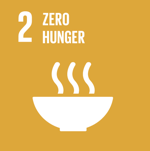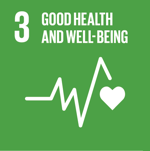Zero Waste Initiatives
In March 2019, Marmara University signed a Zero Waste Protocol with the Istanbul Governorship. The protocol has two implementation phases: the first phase involves transitioning the university to zero waste practices, while the second phase requires faculty and students to participate in zero waste training and inspections at national education institutions and public agencies.
The zero waste initiatives at our institution have been carried out as follows:
1. To establish a roadmap for implementing the Zero Waste system at the university, meetings were held under the coordination of our General Secretariat with the Administrative and Financial Affairs Department, the Environmental Protection and Research Coordination, and the Department of Environmental Engineering. Based on these meetings, decisions were made regarding the actions to be taken, and a "Zero Waste Unit" was established under the Administrative and Financial Affairs Department to monitor these activities.
2. Since the protocol also assigned training and inspection responsibilities to our institution, 340 volunteer students were selected to participate in training and inspection activities at national education and public institutions. In April and May, these students received training on Zero Waste practices.
3. To monitor the implementation, a meeting was held in the Göztepe Campus Institutes Building Conference Hall with the participation of all faculty, vocational schools, and institute secretaries, as well as campus and administrative managers. Information was provided by our General Secretary and the Administrative and Financial Affairs Department.
4. To collect waste in our units, three types of collection units were designated: Blue, Green, and Black (Paper, Plastic, Metal – Glass – Household Waste). It was determined that approximately 2400 collection units of each color were needed for all campuses. These units were procured and distributed to all campuses and buildings. Additionally, Waste Information Boards were prepared to indicate which waste type should be disposed of in which unit and were placed at the locations of the collection units.
5. According to relevant regulations, waste must be separated and transported to "Temporary Waste Collection Areas." For this purpose, 8 "Temporary Waste Collection Areas" were established across all campuses and locations, and 48 waste containers of 770 liters each were procured for use in these areas.
6. Guidelines for the implementation of the Zero Waste system at the university, titled "Marmara University Zero Waste Implementation Principles," were developed. These principles were communicated to all university units to ensure that collection and sorting processes were conducted accordingly.
7. To ensure proper management and monitoring of waste processes, it was deemed necessary to designate a waste officer from each academic and administrative unit. Letters were sent to all units requesting the appointment of a responsible person to oversee zero waste activities.
8. To support the monitoring and control of zero waste practices and, if needed, contribute to training and inspection activities, it was requested that 300 students be employed under the Social Work Project – "Protection of Nature" – conducted by İŞKUR during the summer period. This request was fulfilled, and 300 students participated in the program.
9. After receiving waste management training, the students employed under the Social Work Program were assigned to various academic and administrative units across our campuses and locations based on need and began their work.
10. The Zero Waste initiatives, conducted under the auspices of the Presidency, are a project that will provide significant added value to our country, which is dependent on external energy sources. As a leading academic institution, we hope that Marmara University will also make significant contributions to our country in the field of zero waste.
For more detailed information: Marmara University Zero Waste Practices and Social Work Program
This page updated by Sürdürülebilirlik on 27.08.2024 18:08:52



